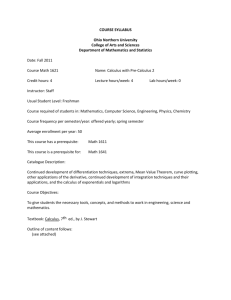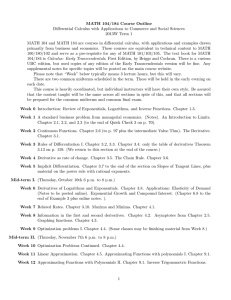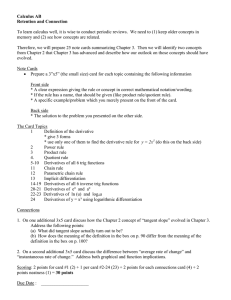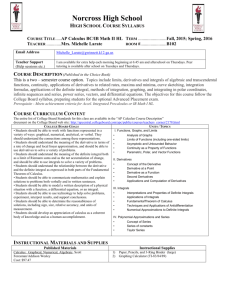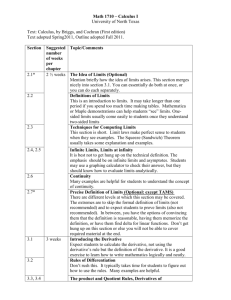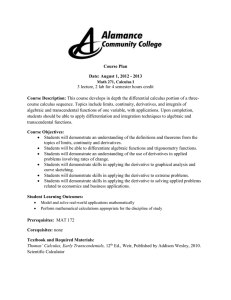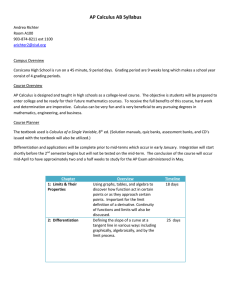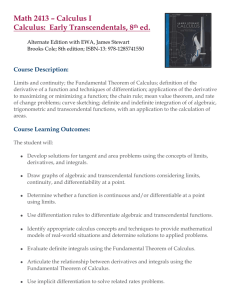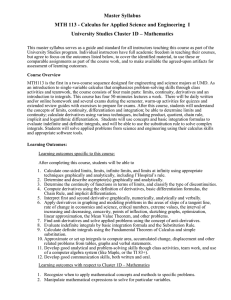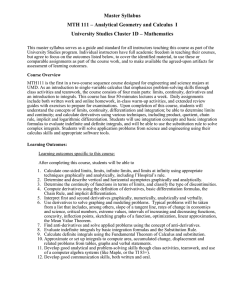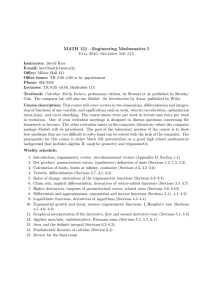Calculus I
advertisement
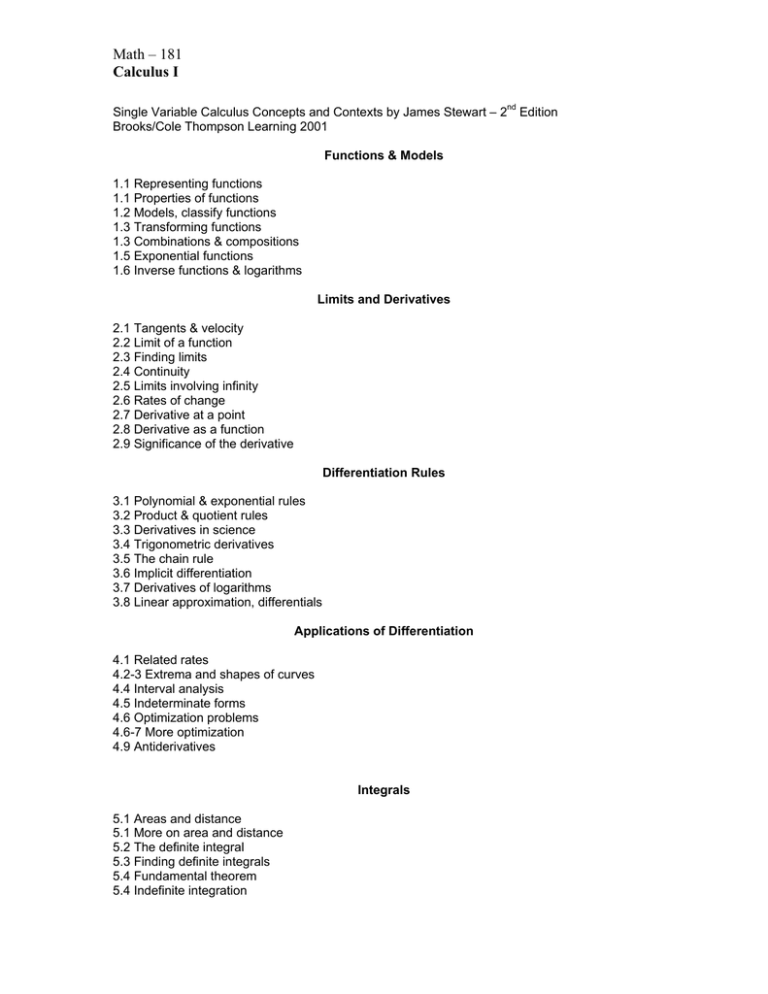
Math – 181 Calculus I Single Variable Calculus Concepts and Contexts by James Stewart – 2nd Edition Brooks/Cole Thompson Learning 2001 Functions & Models 1.1 Representing functions 1.1 Properties of functions 1.2 Models, classify functions 1.3 Transforming functions 1.3 Combinations & compositions 1.5 Exponential functions 1.6 Inverse functions & logarithms Limits and Derivatives 2.1 Tangents & velocity 2.2 Limit of a function 2.3 Finding limits 2.4 Continuity 2.5 Limits involving infinity 2.6 Rates of change 2.7 Derivative at a point 2.8 Derivative as a function 2.9 Significance of the derivative Differentiation Rules 3.1 Polynomial & exponential rules 3.2 Product & quotient rules 3.3 Derivatives in science 3.4 Trigonometric derivatives 3.5 The chain rule 3.6 Implicit differentiation 3.7 Derivatives of logarithms 3.8 Linear approximation, differentials Applications of Differentiation 4.1 Related rates 4.2-3 Extrema and shapes of curves 4.4 Interval analysis 4.5 Indeterminate forms 4.6 Optimization problems 4.6-7 More optimization 4.9 Antiderivatives Integrals 5.1 Areas and distance 5.1 More on area and distance 5.2 The definite integral 5.3 Finding definite integrals 5.4 Fundamental theorem 5.4 Indefinite integration Math – 181 Calculus I 5.5 Substitution Learning Objectives: 1. Understand the concept of a continuous function expressed algebraically, graphically, and numerically. 2. Understand limits – finite and infinite, one-sided and two-sided. 3. Understand the definition of a continuous function in terms of limits. 4. Be able to compute the derivative of a continuous function from the definition and from the usual rules expressed algebraically, graphically, and numerically. 5. Understand the separate concepts of definite and indefinite integration and their connection to differentiation expressed algebraically, graphically, and numerically. 6. Have an appreciation for the basic applications of beginning calculus including but not limited to optimization, related rates and instantaneous rates of change including their interpretation and units.
